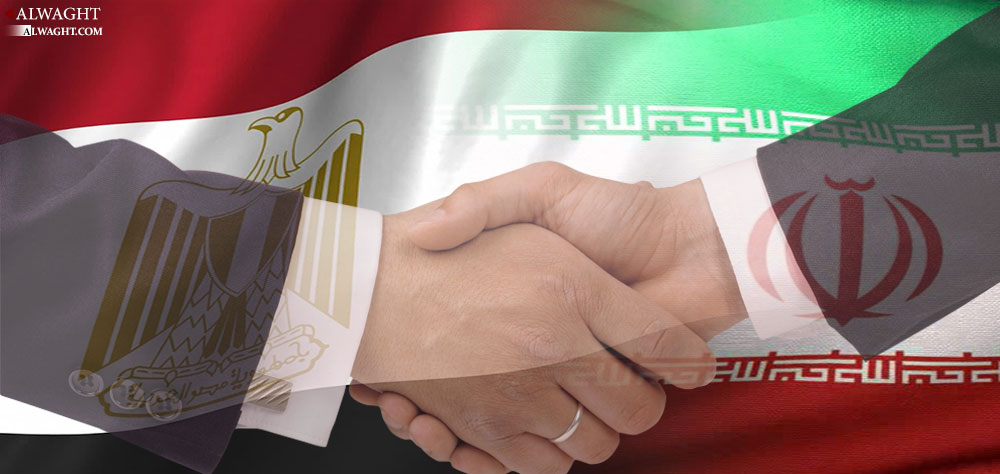Alwaght- When the Islamic Revolution of 1979 built new government in Iran, Tehran in line with its new ideology and policy cut relations with Cairo for Egypt's recognition of the Israeli regime and holding official relations with Tel Aviv. To date, the Tehran-Cairo relations remain frozen. Some trivial issues are seen as standing ahead of an Iranian-Egyptian thaw, like naming a Tehran street after killer of the former Egyptian President Anwar Sadat or making a film that branded Sadat a traitor for signing Camp David Accords with the Israeli regime. But these do not appear as comprehensive reasons for such strained relations.
Tehran-Cairo rifts record
One of the major issues that help us search for roots of chilled Iran-Egypt relations after the Iranian revolution of 1979 is Cairo's diplomatic ties with Tel Aviv, deemed by Tehran treason to the Palestinian cause. Before establishment of the Islamic Republic of Iran, the Pahlavi regime of Iran held relations with the Israeli regime and supported it, an approach pushed Egypt's Gamal Abdel Nasser to cut ties with Tehran. Although Nasser said the Pahlavi ties with Tel Aviv were the main drive behind severing ties with Iran, analysts suggested that Nasser's closeness to the communist Eastern Bloc was the main cause of the decision. However, since establishment of the Islamic Republic of Iran, the Egyptian relations with the Israeli regime turned to be a key factor in keeping the Tehran-Cairo ties chilled. Anwar Sadat signed the Camp David Accords with the then Israeli Prime Minister Menachem Begin. The accords caused uproar in the Arab world, pushing the leaders of other Arab countries to cut ties with Cairo. The same step was taken by newly-founded Islamic Republic of Iran against Egypt.
Why do the ties remain cut to date?
A couple of reasons are suggested as blocking way of a thaw between Iran and Egypt. For example, some tie it to the Egyptian relations with the Israeli regime. This comes while tracking the course of regional developments makes it clear that the Cairo-Tel Aviv ties should no longer be the main cause of ongoing diplomatic freeze between Iran and Egypt, because some of the Persian Gulf Arab states like Oman, Qatar, and the UAE have unofficial but open relations with the Israeli regime but Iran never cut ties with them because of this, though Tehran denounces such an Arab connection with Tel Aviv. This tells us that the Israeli factor is not the only drive for the Tehran-Cairo ties to remain severed.
Some others note that Egypt like Turkey and Saudi Arabia raises a “strategic worry” about Iran's reformist and even expansionist policies in the region. They argue that Tehran is after holding a sway in the Arab world, and Iran’s influence in Iraq, Yemen, Lebanon, and Syria is expressive of this fact. Being the cradle of the Arab nationalism, Egypt cannot approve of an– at least– cultural Iranian influence in the Arab world. So, Iran's ambitions are suggested as another factor impeding an Egyptian-Iranian rapprochement. But this factor cannot be correct. Iran never sought a negative role and influence in the region, and even it is rising as an anti-terror force in West Asia, fighting terrorism very effectively.
Another cause helping deepening the gaps between Iran and Egypt is Saudi Arabia. Being a rival to Tehran, Riyadh always sought a united Arab camp against Iran. This chance was provided for Saudi Arabia especially after the Egyptian 2011 revolution. Being in desperate need of the Saudi Arabian aids, Egypt to some degree tries to adopt a pro-Saudi approach in its policy. When the President Abdel Fattah el-Sisi of Egypt came to office in May 2014, Saudi Arabia supplied Egypt with a $5 billion aid package. But Cairo, on the other side and despite economic troubles, has tried to show independence. For example, it voted for a Russian UN resolution on Syria, provoking Saudi Arabian criticism.
The road to rapprochement
Despite all of the blockades, the Egyptian-Iranian ties can see a thaw. But how? They key is Russia— and perhaps Syria. Having friendly relations with both Cairo and Tehran, Moscow can act as a mediator. El-Sisi broadened ties with Moscow, with an intention to create a balance in relations with Russia and the US. Moscow sold arms to Cairo when the US froze annual arms aid to Egypt. Additionally, Moscow set to lend Cairo $25 billion amid news that the Russian companies will build a nuclear power plant in Egypt. This means Russia-Egypt relations are going to upgrade to a strategic status.
El-Sisi supports President Bashar al-Assad of Syria and the unity of the country, something striven after by Iran and Russia as key Damascus allies. The joint efforts to settle the regional crises and commonality in stances and goals can help Tehran and Cairo head to diplomatic normalization.



























